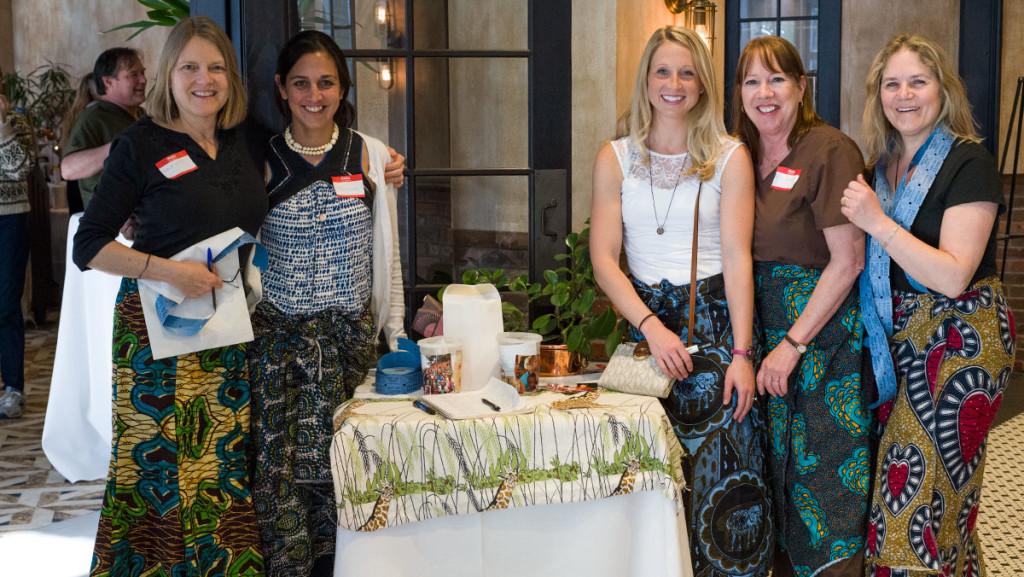At the end of May, when many Ithaca College students will be at home or working at internships, a team of healthcare professionals from the college will be traveling to Malawi.
Made up of registered professional nurses Mary Taylor and Erica Weiss; Vivian Lorenzo, physician and medical services director; physician Melissa Dhundale; Kathaleen Besemer, clinical laboratory supervisor; and Jill Mayer, clinical assistant professor, the group will be traveling to Malawi to provide medical care and to also reevaluate an Ithaca College study abroad program that previously existed in hopes of offering it to students. In the past, students who participated in the study abroad program have worked at hospitals and clinics, bringing medical care to those in rural villages.
Life & Culture Editor Celisa Calacal spoke with Taylor and Mayer to discuss the group’s plans for Malawi, their personal experiences in the country and how they hope to recreate a study abroad program from the trip.
Celisa Calacal: Where did the idea for this trip to Malawi come from?
Mary Taylor: I have been here since 1984 as a nurse, and I decided to go back to school … and got a degree in community health. And part of the degree, I needed field work, and I always had dreamed of Africa … So I worked up this proposal with Julie Boles, and I went to Malawi in 2006 and then in 2008 to fill my fieldwork requirements. When I came back, [School of Health Sciences and Human Performance] Dean [Janet] Wigglesworth asked if I would design a short-term study abroad with students and run it for three years … and we actually did for four years. Last year, there was a fear with Ebola, so it didn’t run. So what evolved this year was coworkers said, “Well, why don’t we go as professionals?” … The reason we didn’t do students is because we feel this is an initiative to improve the study abroad program, and by bringing team members that haven’t been, it can widen our base on what we offer students in the future. So everyone has a different perspective, like one of the people might say, “Well let’s do a program with journalism and Park students, or let’s take physical therapy students.” So this is an initiative that kind of feels important for the growth of the program.
CC: How do you hope the trip will help revamp the study abroad program for the future?
JM: I think in this time, we are going to a few new places to see, are these good places to bring students in the future? So I’ve been, in the past, separate from study abroad. I went with study abroad in 2010 when I was just finishing my degree as a physical therapist at Ithaca College. And then it really moved me and inspired me, and I then went back as a practicing clinician three years later with my now husband. He and I worked at a hospital and we visited an OT/PT clinic and we did a few similar things, but we did some different things, and so, this time, we want to go back and look at other avenues for student involvement, including this physical and occupational therapy clinic, which is also an educational center. It also offers speech-language pathology services. It offers nutritional services. We are connecting with some villages there, and we are trying to do some sustainability initiative with the planting of seeds, and I’m gonna try bringing … solar lights over for this trip to see how they’re received.
CC: Why Malawi specifically?
MT: The warm heart of Africa. It’s a very poor country, and it’s a very safe place to bring our students. There are no wars going on, there’s nothing to fight over, there’s no diamonds or oil there, so it’s safe. And that’s number one when we take students — we want them to feel safe.
CC: What kind of work will you be doing in Malawi?
MT: When we arrive, we will visit what’s called a crisis care nursery, and there’s probably 20 children under two and nannies that take care of them. So our team, when we arrive, we’ll do physical exams of the nannies and the babies to check their health. That’s day one.
JM: I’ll do some therapy if children have cerebral palsy or cerebral malaria, or there’s a … high prevalence of epilepsy in the country, so we’ll just kind of assess the needs of the babies, too, and help.
MT: And then that week we’ll do two mobile medical clinics, where we actually go out to rural villages with all the medicines that we’re bringing, and we’ll buy medicine in-country to take care of people that can’t get into the cities to get health care.
CC: What was the study abroad program like prior to the ebola scare?
JM: It was phenomenal — that’s why I went back. It was an amazing experience. We did two mobile medical clinics, we helped in a rural hospital that had had no power or water. They were delivering births without even power for years and years. We went to widows’ villages. We helped paint … and finished building homes for widows to stay … By this trip, we’re hoping to continue to broaden it even more with a similar focus of exposing students to various healthcare in different cultures and how our own practices can impact healthcare across the globe.














